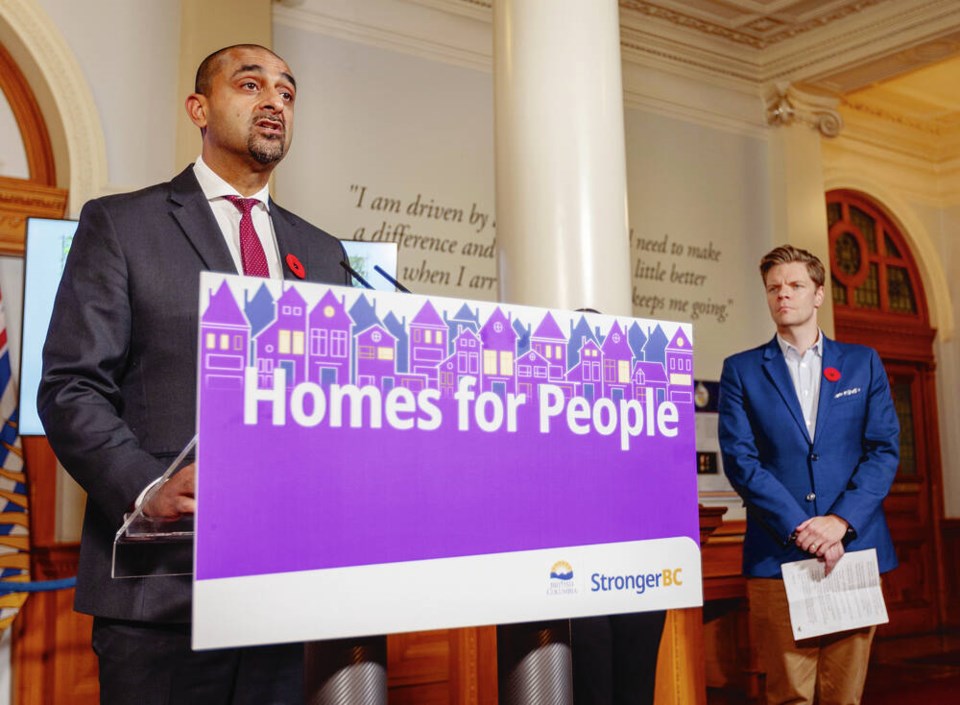In its first half-dozen years, the provincial gestures on housing have been what the Texas ranchers refer to all hat and no cattle.
In any other political scenario than the poll-leading one in which the BC NDP finds itself, its five-pack of legislation in recent weeks would be considered the Hail Mary pass of a desperate government – the equivalent of what we’re seeing with Justin Trudeau’s Maritime manoeuvre on home heating oil.
Instead, the province’s government of the day is being given the long leash as if it were the government of the decade or the generation.
It worries me when governments move swiftly after not moving much at all, so I have qualms about the expedient process and the sustainability of what’s been rushed into place.
We are entering an era of mass rezoning for more density with a reduced public opportunity for political accountability.
Let’s deal with the latter issue first. Now, it is a truism that there can sometimes be too much democracy. Winston Churchill once mused: “The best argument against democracy is a five-minute conversation with the average voter.”
Still, even though I’ve spent hours I will never get back to watch public hearings, I revere the concentrated purpose of citizenry to produce granular critiques of any esthetic neighbourhood disruption that construction might bring. The commitment is heartening.
I side with people who buy a house and expect that, save a major earthquake or a military invasion, their views to the left and the right and the ahead and the behind will be what they bought.
Of course, I also get that owners have not in this market for a quarter-century now needed to lift a finger to reap substantial rewards. They just have to buy and be there; it’s as if someone quietly deposits a couple of hundred dollars every week into their bank accounts to reflect the appreciation of their properties.
People have a significant entitlement to challenge significant change to their neighbourhoods – even Churchill would agree – but municipal politicians will now be able to simply point to the provincial laws and say it is out of their hands. It is less likely that a provincial politician will pay the price of increased local density, whereas development is a core local responsibility for which elected officials have been historically held accountable.
What also concerns me is the impact on amenities. There is a horrid history of communities trading increased density or height in buildings for the financing of a local amenity. Many communities have developed an unholy dependence on the quid pro quo of additional cash for additional construction.
The province seeks some kind of rationalization of this largely underground economy of development, and good on them. But I suspect it will mean smaller cheques from developers into larger community needs – again, mostly without community consultation.
The largest of the needs involve infrastructure. Forget about the water fountain in the park; think about the water treatment plant in the region. While it will now be possible to divert community amenity contributions into larger projects, we need to remember that ultimately it will mean larger sale prices on what politicians still falsely term “affordable” housing.
Affordable housing is an oxymoron politicians cannot admit. Anything affordable now can’t be manufactured without profound public subsidies. We have passed the point of satisfying a bargain-hunting younger generation of aspiring homeowners, much less the hundreds of thousands who will emigrate here in the years it will take for all this new legislation to take effect.
I am impressed by the chorus of appreciation and support from mayors and business groups for the BC NDP’s legislative carpet-bombing to compensate for inertia on what has long been, and long will be, the province’s insatiable concern. It rings of solitary confined prisoners at last provided solid food.
Yet our government deludes itself that it has fashioned a timely response and that its underinformed citizens will actually believe an attainable property is soon within reach. Let’s see if its hurried housing strategy really produces the results it professes at launch. Over to you, developers.
Kirk LaPointe is publisher and executive editor of BIV and vice-president, editorial, of Glacier Media.




